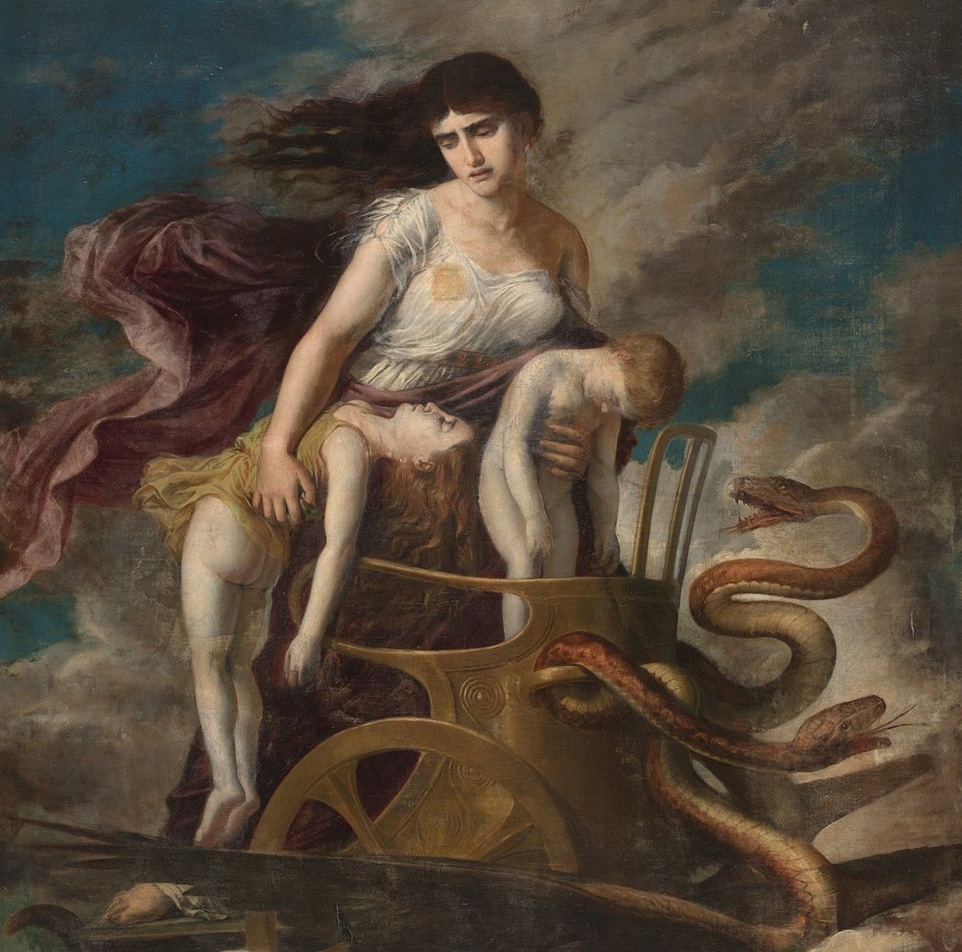Throughout history, magic and those who wield it have been sources of both fascination and terror. Witches and sorceresses like Circe and Medea were depicted as capable of aiding heroes on their journeys while also creating formidable obstacles. Goddesses were admired and feared for their power in the mortal realm.
In honor of the Halloween holiday, we’re sharing our favorite mages, goddesses and seers as we explore the role of magic and witchcraft in the ancient world.
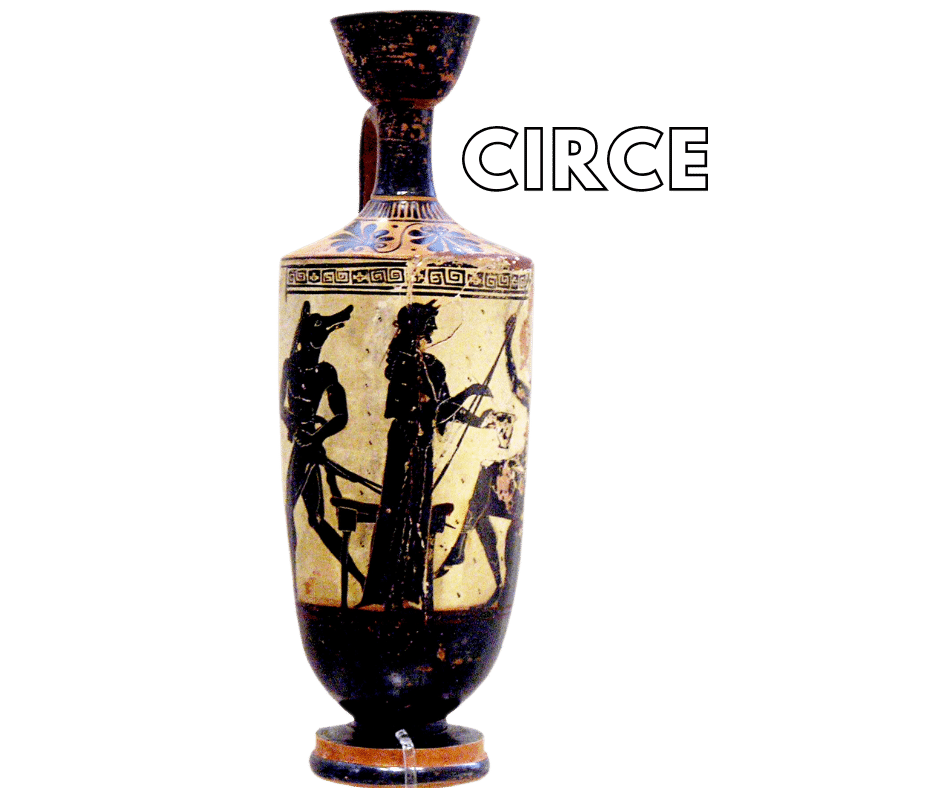
Circe, The Enchantress
Circe is often regarded as one of the earliest and most prominent examples of a witch in Western literature. In Homer’s Odyssey, she appears as a powerful enchantress living on the island of Aeaea, possessing the ability to transform men into animals with her potions and spells. Feared for her magical powers yet respected for aiding Odysseus on his descent into the Underworld, Circe embodies both danger and assistance. Texts like the Greek Magical Papyri contain recipes for potions and instructions for magical rituals using herbs and other natural ingredients, echoing practices attributed to figures like Circe.
Medea, The Witch
Medea makes her most prominent appearance in Euripides’ tragedy Medea, 431 BCE (though earlier references can be found in Hesiod’s Theogony). In Euripides’ Medea, she breaks out on the scene as a powerful sorceress who exacts revenge on her unfaithful husband, Jason, by killing their children and his new bride. She’s a mix of human emotion with supernatural abilities. Medea is characterized as being both sympathetic for her mistreatment and terrifying for her vengeance.
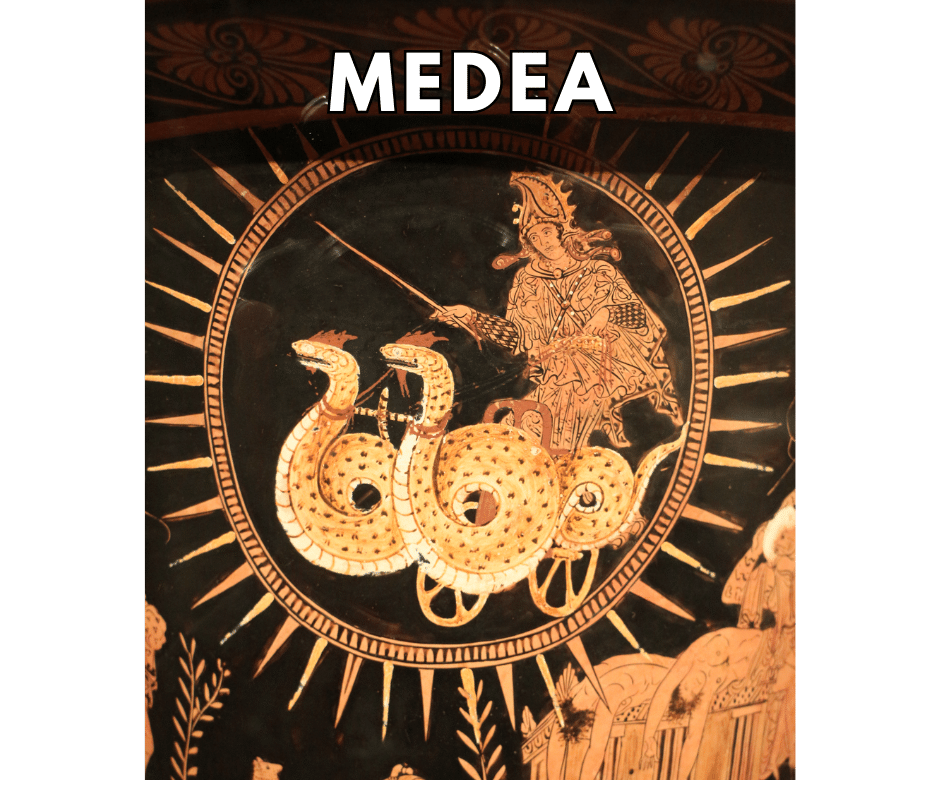
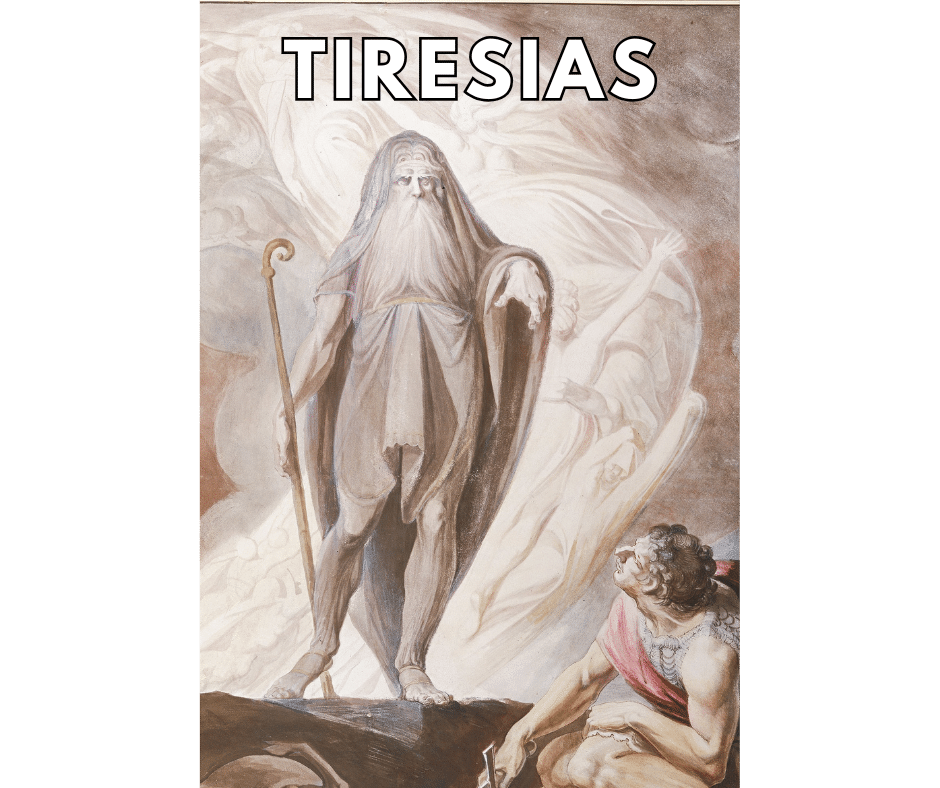
Tiresias, The Seer
Tiresias’s ties to divination are deeply woven into Greek mythology and literature, positioning him as a bridge between the divine and mortal realms. In the Odyssey, Odysseus seeks out Tiresias in the Underworld for crucial guidance on his journey home. In Oedipus Rex by Sophocles and The Bacchae by Euripides, he foretells the fate of the main characters, solidifying his status as a powerful seer. In ancient Greek society, sacred oracles like the Oracle of Delphi were revered for their perceived reliability and their connection to the gods’ will.
Hekate, Goddess of Magic
If there is ever a goddess to get behind is Hekate. In Theogony, Hesiod describes her as a deity who can grant wealth, victory, wisdom, and good fortune to her devotees. Her dominion over the earth, sea, and sky, highlighting her extensive influence. In the Homeric Hymn to Demeter, Hekate guides Demeter in her search for Persephone, becoming a close companion to the latter. In Apollonius of Rhodes’ Argonautica, Medea invokes her during magical rites. Her worship included offerings made at crossroads, city gates, and household entrances, emphasizing her evolving role as a deity of magic and the Underworld.
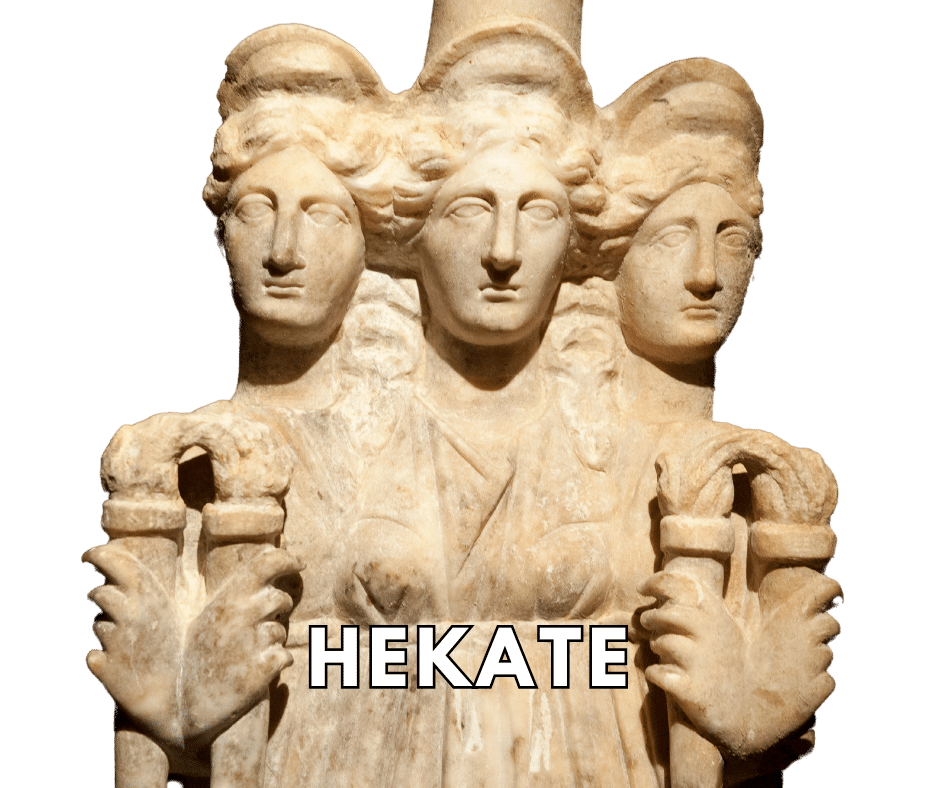
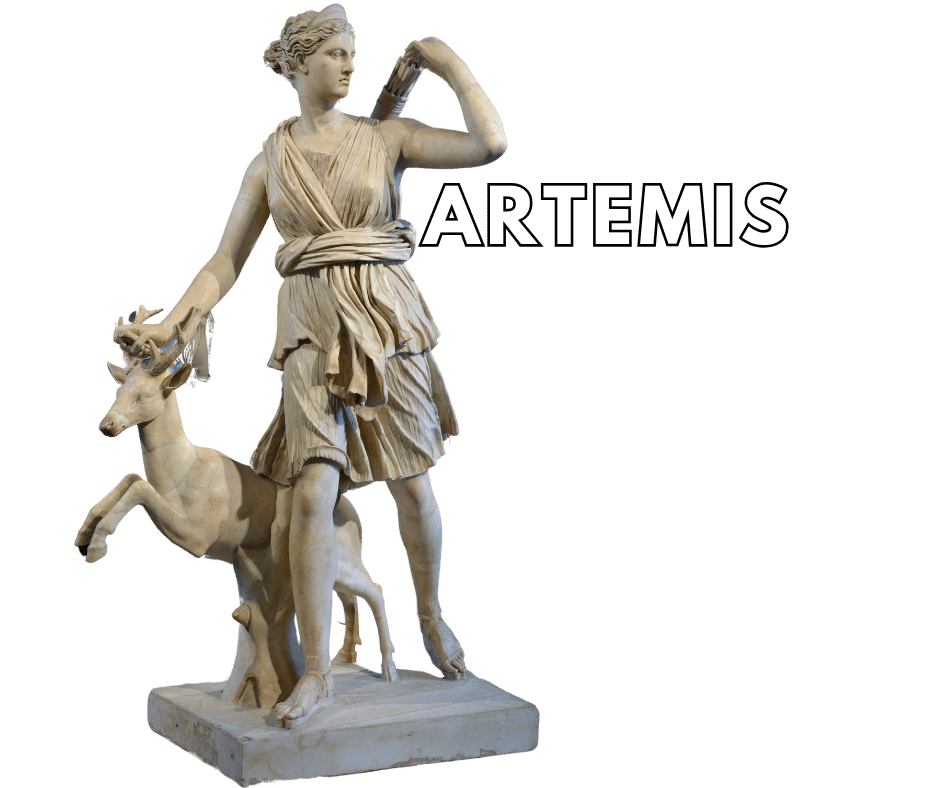
Artemis, Goddess of the Moon
Artemis (Roman: Diana) plays a multifaceted role in mythology, embodying aspects of hunting, wilderness, childbirth, and lunar power. Her connection with the night and the moon naturally tied her to mystical practices and magic. While Selene personifies the moon itself, Artemis’s role as a wanderer under the night sky associated her with lunar qualities. In magical texts from the Hellenistic period, Artemis/Diana is invoked in spells and rituals, especially for protection.
Persephone, Queen of the Underworld
It all begins with a pomegranate… When Persephone, daughter of Zeus (Jupiter) and Demeter (Ceres), was abducted by Hades (Pluto), she became the queen of the Underworld, serving as a mediator between the living and the dead and embodying themes of life, death, and rebirth. Her presence in curse tablets highlights her authority in the supernatural realm and her significance in ancient beliefs about the afterlife. In the Eleusinian Mysteries, which centered on death and rebirth, Persephone held a pivotal role, promising the initiates hope of a better afterlife.
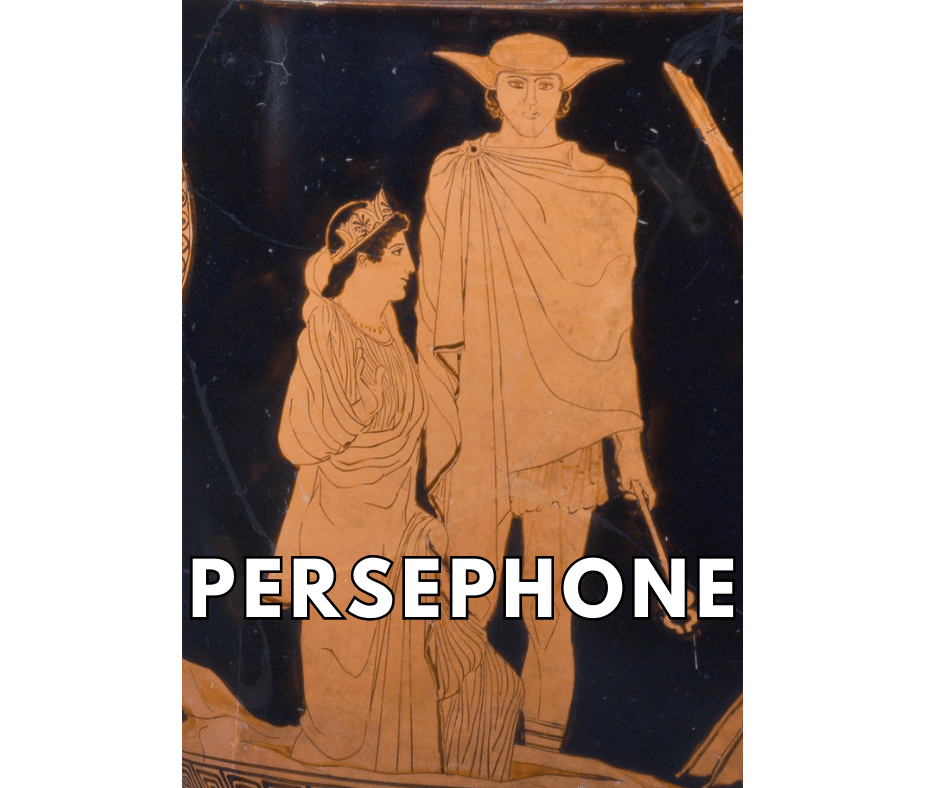
This content is brought to you by The American Institute for Roman Culture, a 501(C)3 US Non-Profit Organization.
Please support our mission to aid learning and understanding of ancient Rome through free-to-access content by donating today.
Cite This Page
Cite this page as: Darius Arya, The American Institute for Roman Culture, “Ancient Mages – Magic & Witchcraft in Antiquity” Ancient Rome Live. Last modified 22/01/2025. https://ancientromelive.org/ancient-mages-magic-witchcraft-in-antiquity/
License
Created by The American Institute of Roman Culture, published on 22/01/2025 under the following license: Creative Commons: Attribution-NonCommercial-ShareAlike. This license lets others remix, tweak, and build upon this content non-commercially, as long as they credit the author and license their new creations under the identical terms. Please note that content linked from this page may have different licensing terms.

